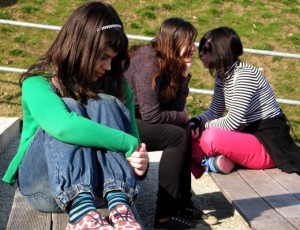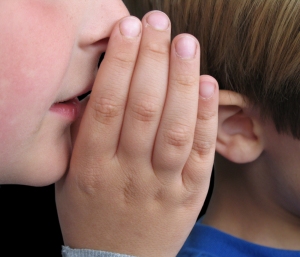It’s mid-August, finally, and many schools in our country are back in session. In my neck of the woods, however, we still have a month to go before that first bell. There are beaches to visit, day trips to take, ice cream to scoop, camp-outs to plan, and all kinds of lazy days spread before us like a month of red-checkered picnic blankets.
Still, it’s mid-August, and while that means the summer’s last hurrah for the next few weeks, for many parents, it also means thinking ahead to the upcoming school year. In my house, we have summer reading (and notes) to finish, as well as math homework (yes, you read that right, we have math worksheets). Amid all the catalogues and online ads and social media posts of faraway friends’ kids having first days of school — first weeks even — there has been this gnawing thought.
What will this year look like for my kids?
Honestly, I’m not concerned about academics. It’s not that my kids are so brilliant. It’s just that I can handle helping them with schoolwork. It’s neat. It’s predictable. Sure, it’s often a challenge at one time or another, but it’s manageable.
What I wonder is what the year will look like for them socially.
 Undoubtedly it’s my own baggage that makes me feel this way, year after year. I had some struggles in middle school, sixth and seventh grades in particular, when both years found me an outcast for some alleged insult to a friend. (Yes, both times a friend heard a rumor I’d said something that I didn’t say, and suddenly no one in the grade spoke to me for months.) I remember this keenly, and have always been on the lookout for my kids. Are they happy? Making friends? Being a good friend? Enjoying school? Enjoying after school?
Undoubtedly it’s my own baggage that makes me feel this way, year after year. I had some struggles in middle school, sixth and seventh grades in particular, when both years found me an outcast for some alleged insult to a friend. (Yes, both times a friend heard a rumor I’d said something that I didn’t say, and suddenly no one in the grade spoke to me for months.) I remember this keenly, and have always been on the lookout for my kids. Are they happy? Making friends? Being a good friend? Enjoying school? Enjoying after school?
It’s usually a case of “so far, so good.” I don’t care about popularity and I don’t care about numbers. I think it’s okay to not be friends with everybody, but I try to teach my kids to be kind to everyone, even if they don’t want to foster a friendship. What I do care about is that each of my children has one or two good connections, true connections, honest and mutual friendships, to count on.
This year, I’m not so sure what to expect. This year, I have my doubts, and also my fears, about what back-to-school will mean for one of my children in particular, because for the first time, in the last few months I have witnessed some genuine Mean Kid behavior. Straight out of a Disney Channel movie.
The first incident happened at the end of the school year. My kids and I were walking to a nearby soccer field for someone’s game. Our route took us through the neighborhood across the street, a neighborhood filled with families and kids, many of whom are friends on some level with my kids. We rounded a bend and I saw them, the three peers of my child, stopped a distance away, chatting. My nerves got edgy; these kids are only peers, not friends, though they friends were at one time. But not any more, as far as I could tell by the sudden lack of phone calls. The were No Longer Friends.
We walked on. The trio walked as well, but stopped every once in a while to chat, or look at a phone or a flower. They saw us; I saw them recognize us. Yet no one spoke, not them, not my kids. Finally we were near enough when I could use my Mom/Teacher voice to say, “Hey there, Name, Name and Name!”
No one answered. By now my blood was a little hot. Never in my wildest dreams would I have imagined any of these kids (I know their PARENTS!) ignoring an adult. But ignore me they did. We closer still, until we were a few steps behind, and we all finally had to turn onto the single-file path through the woods, a cut-through to the fields. One of my kids was on a bike, and wobbled slowly just behind the ahead-walkers, and still no one spoke. As the path widened, my bike-rider shot past them, as did my kid, the peer and former friend of these three, and still not one spoke. Not to that child or the siblings, and not to me. And I thought, “What the what?” and “So it begins.” 
Fast-forward a few weeks, to summer vacation, the local pool. Neighbors, friends, peers swimming, enjoying the hot July sun. They were there again, peers of my child, though not all three, but some, with another in the mix. At one point I gave the kids money to get some overpriced treats from the snack bar. Kids’ peers were perched at a picnic table, slurping on Italian ice. My kid walks past them. One says hi to my kid, brightly, friendly. My kids says hi back, equal in tone. Once she’d passed entirely, with back to them, that peer turns to the group, says something, they all laugh, harshly, glancing at my kid before laughing some more. Again, I was caught off-guard, again I was shocked, embarrassingly so, because one new group member, I’d thought, was my child’s friend. I wondered when that had changed. And how.
Fast-forward to today. Same pool. This was not witnessed first hand, but told to me by one of my other kids. Above scenario, almost to the detail, except one or two of the Other Kids had been replaced by one or two more. Same hello. Same whisper. Same laugh. (Apparently, my child who shared the story spoke up, called the Other Kids out, and basically got a “whatever.” Same child hugged his sibling, and said the Other Kids were a bunch of jerks. I had to kiss them both.)
My child shrugs off these incidents when they are mentioned. My child is kind and forgiving. My child calls them still calls the Other Kids friends. My child is an optimist, always able to see the good side of any situation, of most people.
And even as my child shrugs, I see the ghost of confusion in the corners of the eyes. Even as my child is too proud to acknowledge the insult, I see the flash of hurt, quickly replaced by a smile. Even as my child would never say something bad about a peer, I see the slash, ever so slight, in the layers of the skin.
We talk, and we don’t talk. I speak in circles, mining for the heart of the matter, edging closer. I have to be careful; the ground is very unstable. Too much, and it will all cave in, closed off forever. This is how we progress. Talking, listening, subject changing, whispers in the dark of things that are too raw to say in the light of day.
School starts in a month. These peers, and others, will be omnipresent; it is a small town.
I wonder what September will bring for this child. Re-connecting with true old friends? Finding new friends? Real Friends? I don’t know.
But I will bring all that I have, including the sized-for-the-soul Band-Aids that, for the first time, I fear my child will need.




